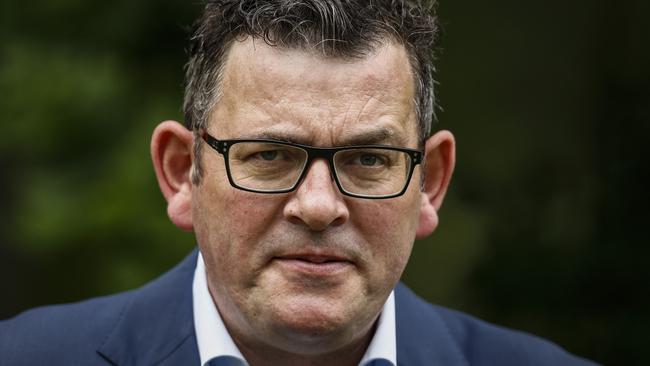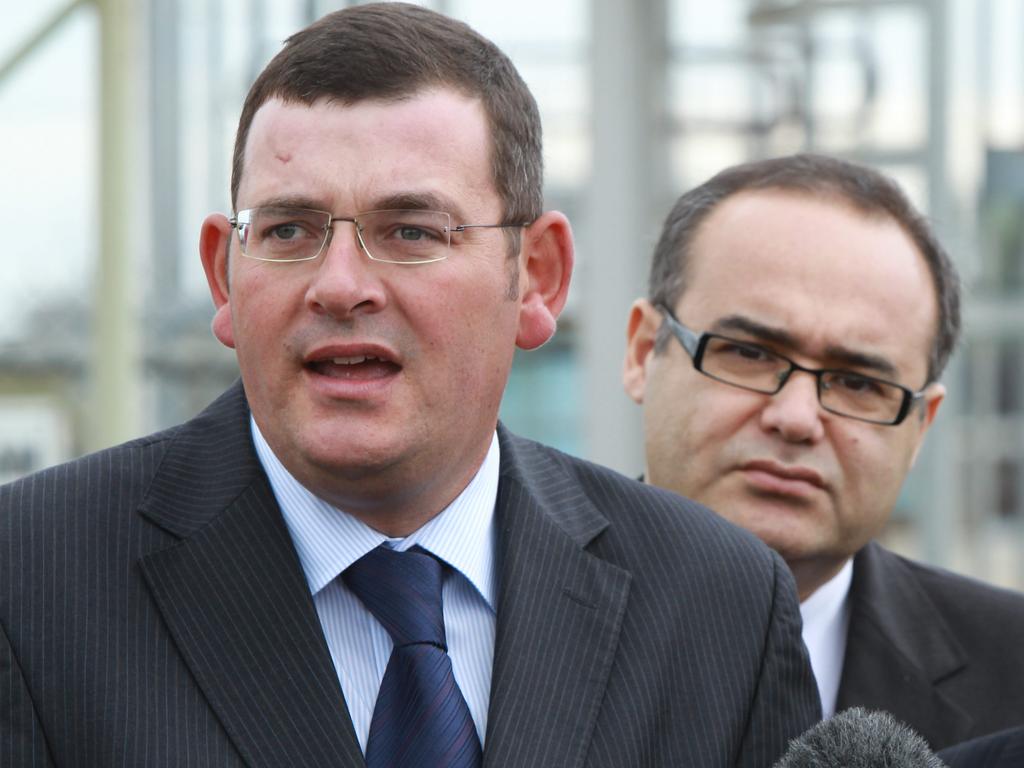Daniel Andrews agrees to implement all 21 reform points
A new integrity commissioner and ethics watchdog will be set up to police the conduct of Victorian MPs.

A new integrity commissioner and ethics watchdog will be set up to police the conduct of Victorian MPs after a damning report blasted extensive and egregious misconduct committed by some factional members of the Victorian Labor Party.
Victorian Premier Daniel Andrews insisted on Wednesday that his government would introduce all 21 recommendations – and go further – following the joint Independent Broad-based Anti-corruption Commission and Victorian Ombudsman investigation into allegations members of the Moderate Labor faction misused public money.
The investigation uncovered widespread examples of the misuse of electorate officers and ministerial staff to pursue factional agendas, branch stacking and nepotism. It did not find evidence that community grants were used to pay for ALP memberships, but members of the Moderate Labor faction did seek to “improperly influence” the process.
IBAC commissioner Robert Redlich and ombudsman Deborah Glass made 21 recommendations, which Mr Andrews committed to implement by 2024 or sooner.
“This is a package of reform. We think that is absolutely accurate. On that basis we will implement each and every one of those recommendations on the timeline,” the Premier said.
“We will in fact go beyond the recommendations that have been made. Today we begin the process of reforming the Victorian parliament,” he added.
In a “headline” change, Mr Redlich and Ms Glass called on the government to establish a parliamentary ethics committee to monitor the members of parliament Code of Conduct and other ethical obligations.
As well, an independent integrity commissioner should be appointed to investigate complaints about breaches of the code of conduct, resolve minor complaints and submit findings relating to more serious breaches to the parliamentary privileges committee.
They should be appointed by a cross parliamentary panel with members from both houses, and have powers to apply sanctions by consent including making MPs apologise for minor breaches.

Mr Andrews said on Wednesday the commissioner would have “significant powers and significant resources” and would also hear complaints about bullying, harassment and sexual misconduct. And he vowed to make political parties fulfil minimum administration requirements before getting campaign funding.
The government will “aim” to establish the new integrity watchdogs in legislation by 2024, with the report noting that it would be “almost impossible” to execute before the state election in November this year.
Members will be banned from employing close family members after the IBAC investigation revealed more than 15 relatives of Moderate Labor-aligned MPs were employed in ministerial and electorate offices.
“It is also clear that some factional operatives and relatives were employed as a favour or reward, were not appointed on merit, and did not possess the skills and experience to perform their job well,” the report reads.
Former factional heavyweight Adem Somyurek, identified in the report as the “architect” of branch stacking campaigns from 2017-20, also ensured his electorate office was fully staffed, despite having no official work for them to do.
The final recommendation was for grant management frameworks to be improved, after a close relationship was identified between factional operatives of the Moderate faction and three community organisations that received grants from agencies overseen by Robin Scott and Marlene Kairouz. They included the Somali Australian Council of Victoria, the Australia Light Foundation and the Cambodian Association of Victoria.
A 60 minutes report in 2020 asserted then multicultural affairs minister Mr Scott signed off nearly $1m worth of grants to those organisations. No evidence was found that the money was used to pay for ALP memberships. But the report found there was not appropriate oversight of the money to make sure it was used correctly.
An offence will be created to hold accountable an MP who directs or allows a staffer to undertake party-specific activities while they are employed to help that MP discharge their public duties.
Electorate officer recruitment will be reviewed and all party memberships must be paid through traceable means and photo ID checks undertaken.





